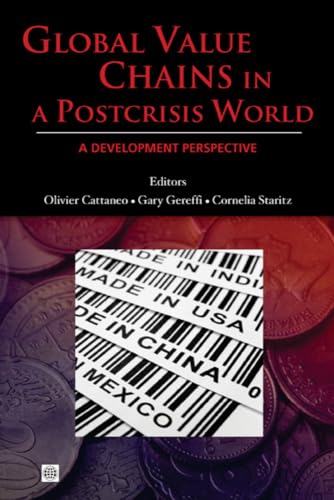Synopsis
For the first time since World War II, global output will drop (-1.7%); per capita income will fall in more than 50 developing countries; net private capital flows will likely turn negative – a more than $700 billion drop from the 2007 peak; and trade is expected to decline by 6.1% in 2009 – the worst decline in 80 years. In response to this global downturn, a number of governments have passed stimulus packages and other measures that aim to preserve domestic industries and jobs, and sometimes discriminate against foreign producers (e.g. “buy local” laws). The most recent forecasts announce a re-bound of trade in 2010 (+3.8%) and 2011 (+6.9%), primarily driven by developing countries. All three elements (dropping demand on major markets, policy responses to the crisis, and developing countries-led recovery) potentially have significant implications for global production, trade, and value chains. How have lead firms responded? Have they changed their traditional supply chain strategy and relocated and/or outsourced part of their production? How will those changes affect developing countries? What should be the policy responses to these changes? How to best prepare developing countries for recovery and integration in the new global production chains?
Review
This book contains invaluable insights and analysis of the microeconomic structures underpinning 21st century globalization, with its opportunities and vulnerabilities. --Kemal DervisVice President, Brookings Institution, Washington, DC Former Executive Head, United Nations Development Programme, New York, New York
The world economy is in a bit of a muck. The impact of the 2008 09 crisis is still vivid. The great challenges and transformations require, among other things, original thinking and more sophisticated and relevant conceptualisation of current global realities. In that context, Global Value Chains in a Postcrisis World is a beacon; it sheds light and will serve as a perceptive guide to analysis and policy making. --Jean-Pierre LehmannProfessor of International Political Economy, IMD, and Founding Director, The Evian Group, Lausanne, Switzerland
This is an excellent path-breaking work on the trade forensics of the 2008 09 crisis that also provides a valuable depiction of key challenges ahead of us. It is a great resource for policy makers and trade researchers alike. --Ernesto ZedilloDirector, Yale Center for the Study of Globalization, New Haven, Connecticut, Former President of Mexico
"About this title" may belong to another edition of this title.

